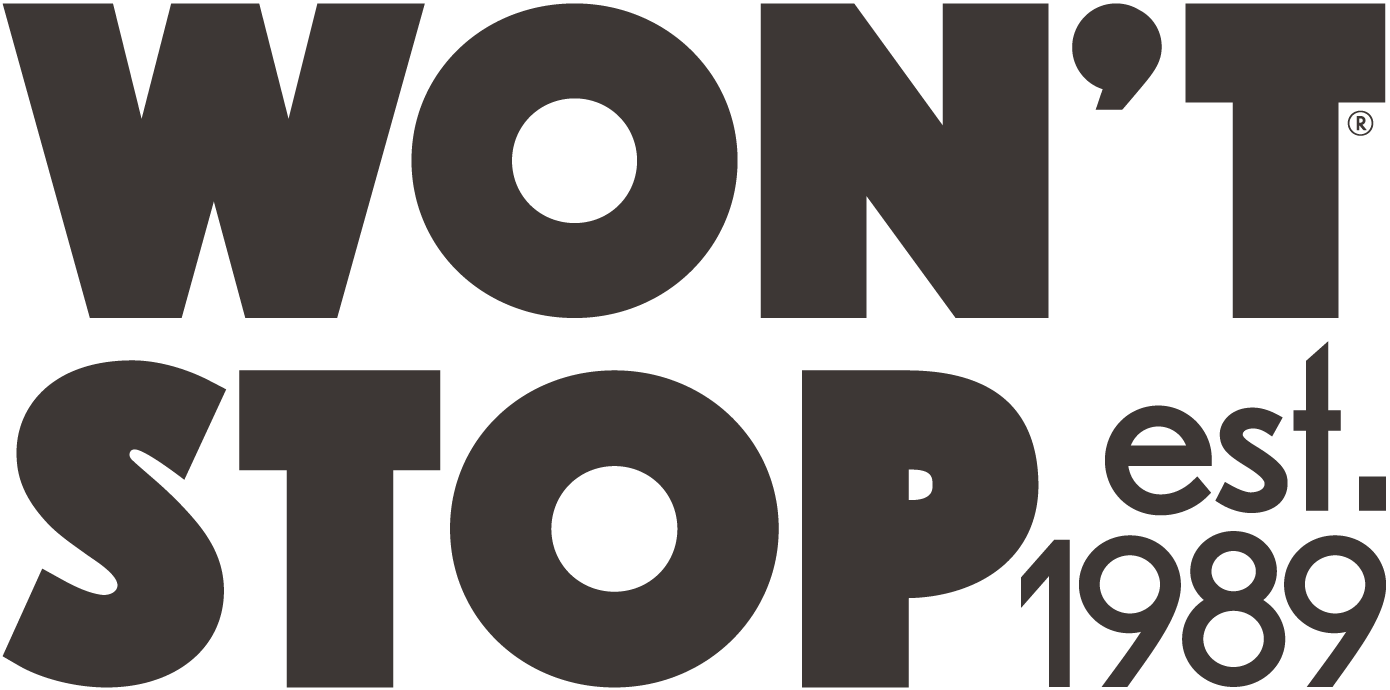Patachou Partners
We met Shaunt'e Lewis and Israel Solomon in the summer of 2020 during a callout for artists, and immediately were attracted to the vibrant, powerful imagery in their pieces. Since then, we have featured shows of their work, and they have helped us to curate quarterly shows featuring local BIPOC artists.
You can currently view their works on display at Cafe Patachou Meridian Kessler and other venues around Indy. Director of Culture Ryu Teramoto sat down with them recently to look back on the last two years of partnership and discuss their career trajectory.
SHAUNT'E LEWIS
shauntelewis.com
Shaunt'e: My name is Shaunt'e Lewis. I’m an artist, illustrator, wife, and mom of four based out of Indianapolis. I got connected with Patachou after the murder of George Floyd when Patachou Inc. Graphic Designer Abby Jones reached out and offered me the opportunity to do a mural Downtown on Patachou’s boarded windows. So the mural eventually didn't get approved by the building owner, but she gave me the opportunity to hang artwork at 49th and Penn, and ever since then, it's been amazing.
Ryu: It adds so much personality to our space and life to our walls. With all the spaces that are available in Indianapolis, why did you decide to work with Patachou? Was there something about our company in general that you connected with?
Shaunt'e: So initially I wasn't connected with Patachou, but over time, I’ve built a really good connection with not just the people at the company, but customers as well. I've made so many great connections with people who came in and saw my work and were just touched by it. So it's just such a good community here at Patachou.
Ryu: Talk a little bit about your art. What’s the driving force behind the work you create and what you have curated for our space?
Shaunt'e: So my work focuses a lot on the strength of a female. A lot of people say, "Why don't you paint men?" But I'm a female, and that's what I relate to, and want to give us a platform. I hope to inspire and encourage people through my work. So, yeah, I just continue to paint portraits of strong women, and we all need encouragement, especially women. We're always the backbone of the family somehow, so we definitely need that encouragement.
Ryu: So the first time you started drawing, how did that feel for you? Were you immediately just like, "Oh, this is how my creativity manifests."
Shaunt'e: So I didn't start painting until later in life, but I always drew as a child, and then I graduated high school, and it was literally ten years before I drew or painted anything. My first painting experience was around 2016, and I had no clue what I was doing, but I knew that I wanted to be an artist one day, like a full-time artist. I always had this in my head, but I didn't know how to paint. So once I painted that first picture, it was a portrait, and it was very abstract of a woman, very colorful. And I was just like, "I'm just going to paint what I feel like painting." And it was an amazing experience. I was afraid to put my artwork out there, but once I did, all the positive feedback was way more than I could ever imagine. And it was just like, okay, I have to do another, and then another, and then another. So yeah, it was an absolutely amazing feeling. I knew in my heart, "This is it. This is what I want to do."
Ryu: I can feel that coming off of you as you talk about it. That positivity really radiates off of you. Representation matters so much, and you are a Black woman who's an artist, who's showing other Black girls that they can be artists. How do you feel about that?
Shaunt'e: I always go back to my childhood. I didn't know any artists. I didn't know any artists of Color. I didn't even know why I got this idea that I wanted to be an artist. I’d never seen anyone, I mean, a woman, a Black woman, period, a Black man, being an artist, but I knew I had this idea. So it's very important for me to represent that because it's something I didn't have. My grandmother always tried to instill art in me, and she knew that was my passion. She didn't really know how to introduce me to any other artists because there was none around. There wasn't even an art supply store in my city. It was just Walmart, just get crayons here and there and colored pencils, so that's really where I started. So representation is very important because it's something I didn't have, and I think my life would have been a lot different if I’d had it.
ISRAEL SOLOMON
israelsolomonart.com
Israel: My name is Israel Solomon. I'm a visual artist. I'm also an educator. I've been creating artwork basically my whole life. I started off drawing when I was very young, drawing my favorite cartoon characters and stuff like that, Sci-Fi movies and stuff, things of that nature. I just continued to do it as I grew older and I always had the passion to create things.
Ryu: If you look at your work, it's geometric, but it's juxtaposed with these really emotive figures. I think it's really compelling.
Israel: Thank you. I appreciate that. That's something that I've been really working on, and that's been a growth process in my work as well. One of the things that I want to do moving forward is I want to tell stories about myself and let people know a little bit more about who it is that I am and hopefully people will have a connection with some of those thoughts. It's not all bright, vibrant and shiny. Now, the colors might be, but some of the things that I'm trying to express might not be such because as human beings, we're going through all kinds of different things. We have our ups and our downs.
Ryu: Was it intimidating for you to decide, I need to put more of myself into my art?
Israel: I don't know if I would say intimidated. I just maybe felt what I was doing needed to grow, and it needed to develop outside of those types of things because that can be done all day, every day. But for me, I don't feel like that's allowing me to grow as a person.
I think it can be a little bit intimidating because as artists, we do have to support ourselves and we do have to sell work and create things that are going to keep us going, but I would rather produce things that are coming from me than to just make things that I think that people might connect with or what people are thinking about when they think of me.
Ryu: You were connected with Cafe Patachou a couple of years ago. Has there been a response from being featured at Patachou?
Israel: Yeah, definitely. I've had people reach out to me and be interested in my work, and I've definitely made some connections through being featured here, so that's definitely been a good thing. I'm creating this work because I want people to see it and experience it.
Having a venue like Cafe Patachou is a great place for me to do that. My wife, she eats here, and she's brought her friends here. From coming in here and just observing, I'm very observant, It seems like it's like an eclectic bunch of people that come in here and there's a variety of people that are coming in. I think that is good for a lot of different people to be able to have their eyes on my work.
I've also helped to curate and I brought in a few other artists as well in here, and they've told me that they've had some success from being in here as well and had some new eyes on their work. That feels good to me, too, to be able to help other artists as well to have more eyes on their work, because that's what it's about. So being here allows a new group of people to see my work that may not have experienced or known who I was prior to.
Ryu: Do you feel like your art has to make a statement?
Isreal: Sometimes I just want to develop and I just want to experiment and to learn from that. Sometimes black artists aren't provided that space or opportunity to do that [not make an activist statement with their work]. A lot of times I think we can feel like a burden placed on us to create things that have a strong statement, and sometimes it's not about that. Sometimes I just want to just create something that's going to move me forward in my technique.
Ryu: It must be so wonderful for your students to have you as that person who can say, this is a viable career.
Israel: For sure. Yeah. At the same time, I tell my students, look if you're trying to get in the field of art thinking that just to make some money, please don't do it. If you're wanting to move into a career artist because you think that it's a way to make money, it's probably not going to work out for you and the work that you produce, it's going to be empty. But if you want to do this because you have a passion to do it and you love doing it, that's the right reason right there. Then your consistency in doing it every day will pay off. That's how it's worked for me, is I dedicate every time, every day to do it.
Ryu: When people come into Cafe Patachou to see your work, what do you want them to take away from that experience?
Israel: I just hope that they can connect with some of the emotions that I'm trying to convey in my work. I think that the vibrant colors in the work are very attractive and it pulls people in immediately. But I hope that maybe some of the emotions that I'm trying to convey or the experiences that I've been through, hopefully that they can connect with them.
My show we be in the main gallery at The Harrison Center for the month of May. First Friday will be the official opening reception which is 5/6/22. The show is titled “Victory Lap”.

